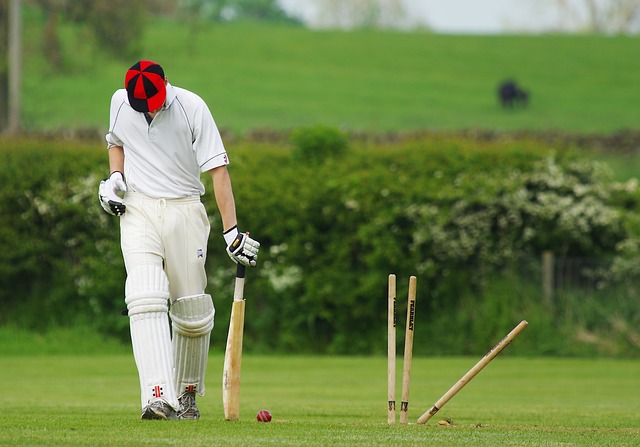
This season the cricket team I play for was on fire. Up to Christmas we had not lost a game, not one. We won ugly at times, just falling over the line. In other games we romped it in. Then, finally, we got ourselves in a horrid position and could not get anywhere near the runs required. Wickets continued to fall and eventually I was required to bat.
My presence at the crease is a finely crafted attempt at looking much worse a batter than I actually am. How do I do this? Well for one I wear mismatched gloves. One of these gloves is brand new, the other ridden with holes. I also refuse to tuck my shirt in.
After every ball I yawn and saunter out to square leg dragging my bat behind me. I can defend my wicket and I count my overs more than my runs. It usually works. Unfortunately, this time it did not.
I went out to join the captain, the last recognised batsman and we had a slight chance of winning. After five overs and with too many runs to get the captain tried to raise the strike rate. He got bowled playing across the line to a ball that he should have driven.
After bidding farewell to him the next bat was our specialist bowler who is usually last to bat. Such is his notoriety in the club there is an award named after him. To “win” it you have to take more wickets than runs and this season his victory is well assured.
The situation was such that the only response was for me to try and make a good show and play a shot or two. And two it was. One went straight to the fielder at mid-off for no run. The other was right in the spot for my hoik over mid on. Of course I did not get enough height or power on the ball which was grasped one handed at short mid-wicket. After wincing and muttering choice words to myself I waited for the handshakes as I assumed the game was over. It was not.
I had forgotten that our young swing bowler (who had taken two wickets and swung the ball like a boomerang that day) had injured himself earlier and was coming in last. He can bat better than I can. We could have lasted the remaining overs and made it an annoying time for our opposition.
If I had known that I would have not played that shot at all. I would have waited for him. But I did not. And in two overs the game was finished. Our specialist bowler got out as expected and I felt a bit sheepish.
The loss we had to have
Of course at this point the stereotypical narrative of “the loss we needed to have” was trotted out. And I did wonder how much of a loss it had been. On that day my team was beaten by an opposition that had a good keeper batsman and a captain that rotated his bowlers very well. They took their catches and played a good game.
We dropped catches and fumbled runout attempts. Though what hurt most was that in the corresponding game against the same team, we beat them. A nice six in the last over helped us fall over the line. Though my memories of that game were not so spectacular. Two overs no wicket for 30 runs is woeful not spectacular. I was hit out of the game by the keeper batsman and vowed it would not happen again. Which it certainly did not as figures of 5 overs 2 maidens 1 for 16 made this game, personally, far from a loss.
What made it complete was that the one wicket was the same keeper batsman that took 30 runs off two overs last time. Revenge? It was not exactly that. I bowled poorly to a left handed batsman. So I spent every chance I could to bowl to the few left handers at training. It was planning and execution based on what went wrong.
I believe what comes out of a loss is more important than what created it. True, reading this makes my little win in a losing game seem easy. The space between the games was two months. I still have matches when batters get easy shots off me. Never more than a few balls but it will happen.
Analysing and creating a plan to execute requires more than yourself. I involved members of my team and the more experienced bowlers at the club. I sought advice from them and then trained against the left handed batters available. As a team we now have to do the same.
If anything when the Australian cricket team captains' over the years explains a loss, they too speak of this, that a loss can be a 'good' – think Australia's 20Twenty series loss to England last month. Come to think of it, isn't there references to this in the 'good-book' – think ship wrecks, imprisonment, beatings, public ridicule and exile.

Phillip Hall plays cricket in Melbourne's eastern suburbs bowling leg breaks and still cannot stop giving his team mates out LBW when they pad up in front of the stumps.

Phillip Hall has been too long in Melbourne to see AFL in the same light as those back in Fremantle. East Fremantle born and bred, he would love to see the Dockers back in the eight. But would settle for just beating West Coast twice a year.